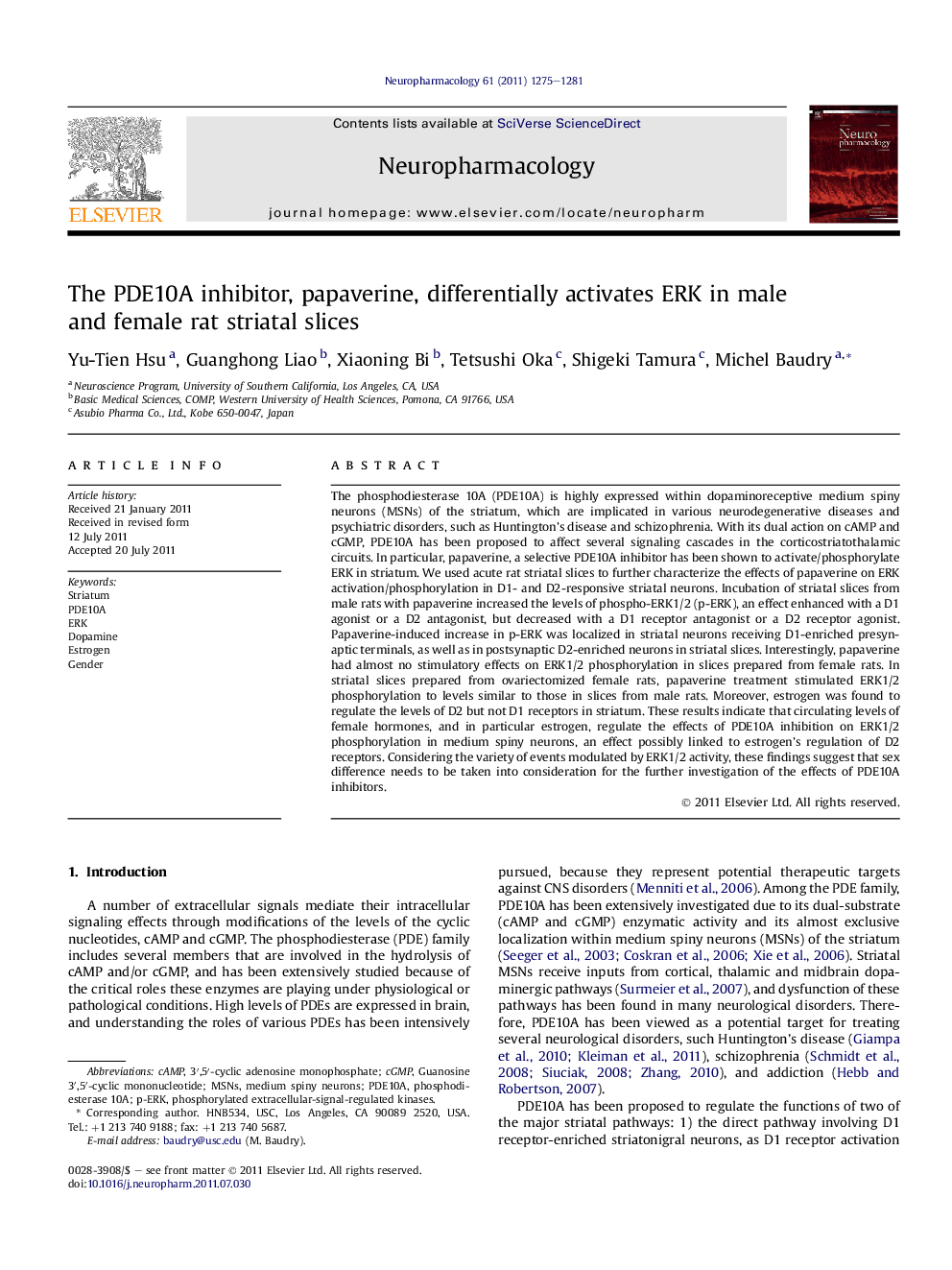| Article ID | Journal | Published Year | Pages | File Type |
|---|---|---|---|---|
| 5815710 | Neuropharmacology | 2011 | 7 Pages |
The phosphodiesterase 10A (PDE10A) is highly expressed within dopaminoreceptive medium spiny neurons (MSNs) of the striatum, which are implicated in various neurodegenerative diseases and psychiatric disorders, such as Huntington's disease and schizophrenia. With its dual action on cAMP and cGMP, PDE10A has been proposed to affect several signaling cascades in the corticostriatothalamic circuits. In particular, papaverine, a selective PDE10A inhibitor has been shown to activate/phosphorylate ERK in striatum. We used acute rat striatal slices to further characterize the effects of papaverine on ERK activation/phosphorylation in D1- and D2-responsive striatal neurons. Incubation of striatal slices from male rats with papaverine increased the levels of phospho-ERK1/2 (p-ERK), an effect enhanced with a D1 agonist or a D2 antagonist, but decreased with a D1 receptor antagonist or a D2 receptor agonist. Papaverine-induced increase in p-ERK was localized in striatal neurons receiving D1-enriched presynaptic terminals, as well as in postsynaptic D2-enriched neurons in striatal slices. Interestingly, papaverine had almost no stimulatory effects on ERK1/2 phosphorylation in slices prepared from female rats. In striatal slices prepared from ovariectomized female rats, papaverine treatment stimulated ERK1/2 phosphorylation to levels similar to those in slices from male rats. Moreover, estrogen was found to regulate the levels of D2 but not D1 receptors in striatum. These results indicate that circulating levels of female hormones, and in particular estrogen, regulate the effects of PDE10A inhibition on ERK1/2 phosphorylation in medium spiny neurons, an effect possibly linked to estrogen's regulation of D2 receptors. Considering the variety of events modulated by ERK1/2 activity, these findings suggest that sex difference needs to be taken into consideration for the further investigation of the effects of PDE10A inhibitors.
⺠The PDE10A inhibitor, papaverine, stimulates ERK in both D1 and D2 receptor-responsive neurons in the striatum. ⺠Papaverine does not stimulate ERK in striatal slices from female rats. ⺠The stimulatory effect is restored following ovariectomy. ⺠Estrogen regulates the levels of D2 but not D1 receptors in striatum. ⺠The results indicate that estrogen regulates responsiveness to D2 receptor stimulation.
